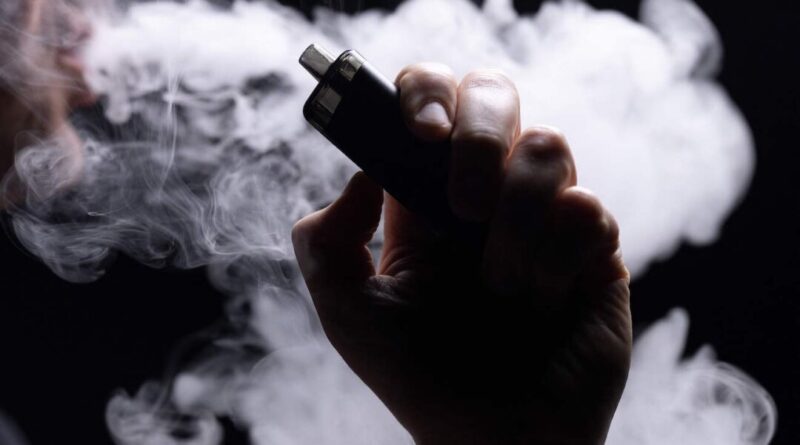Depressed University Students Found to Be Twice as Likely to Vape, According to University of Sydney Study
The researchers emphasized the need for comprehensive mental health support alongside efforts to prevent vaping.
A study conducted by the University of Sydney revealed that students with depression are twice as likely to vape compared to their non-depressed peers.
Over 5,000 students in year seven and eight from 40 schools in New South Wales, Queensland, and Western Australia participated in the study between May and October 2023, generating a substantial dataset on adolescent vaping in Australia.
Among the surveyed students, 8.3 percent (428 students) had used vapes, with vaping being more common among those reporting moderate stress (74 percent) and high stress levels (64 percent).
Moreover, students with low well-being were 105 percent more likely to vape than their high well-being counterparts, although anxiety symptoms were not associated with e-cigarette use.
The baseline of this research came from the OurFutures Vaping Trial, which is Australia’s first controlled trial of e-cigarette prevention in schools.
Lauren Gardner, co-leader of the trial at the University of Sydney’s Matilda Centre, stressed the necessity for more research to understand the connection between mental health and vaping.
“Addressing this issue is crucial due to the rising prevalence of vaping and mental health issues among young individuals.
“These results underscore the urgent need for evidence-based prevention and intervention strategies to support the health and well-being of young people in both the short and long term.”
Associate Professor Emily Stockings, from the Matilda Centre, pointed out the increasing evidence of a correlation between vaping and mental health.
“Vaping has been associated with the emergence of mental health problems, and vice versa,” Stockings, a co-author of the study, noted.
“While our study did not delve into this aspect, it’s plausible that shared social, environmental, and genetic risk factors may explain this relationship, or it could suggest potential self-medicating behaviors.”
In the immediate future, “nicotine may alleviate feelings of stress and anxiety, prompting young people to resort to vaping as a coping mechanism.”
“Regardless of whether mental health issues lead to vaping or vice versa, it’s evident that addressing mental health is essential to prevent vaping initiation,” she added.
Vaping Conversations with Healthcare Providers
The Australian government prohibited the sale, provision, and importation of non-therapeutic vapes on July 1, 2024.
Therefore, individuals must now consult with a physician and receive a prescription for a therapeutic vape from a local pharmacy.
However, starting Oct. 1, adults over 18 can obtain vaping products by discussing their usage with a pharmacist, without requiring a prescription.
Therapeutic vape products will be securely stored, with controlled levels of nicotine and monitored dispensing quantities. The packaging will be simple and pharmaceutical-like, and flavors will be limited to tobacco, mint, and menthol.
Similar Findings in American Study
Meanwhile, a different study conducted by the American Heart Association on 2,505 adolescents also established a link between vaping and mental health conditions.
This study revealed that teens who vaped nicotine-only, THC-only, or both nicotine and THC were more likely to report anxiety and depressive symptoms compared to non-vapers.
More than half of these vapers reported experiencing depressive symptoms, while only 25 percent of non-vapers did.
Additionally, 60 percent of vapers self-reported anxiety symptoms, in contrast to 40 percent of non-vapers.
Anxiety symptoms were particularly common among THC-only vapers, as THC is the primary psychoactive component of cannabis, which is illegal in most Australian states and territories.
The researchers also found that approximately 20 percent of nicotine-only vapers and dual vapers began vaping to manage depression and continued doing so for this reason.
Rose Marie Robertson, deputy chief science and medical officer at the American Heart Association, stressed the need for further research to explore the long-term connections between vaping and mental health.
“There is a critical requirement for effective communication campaigns and educational initiatives to enhance the understanding of e-cigarette risks among young individuals and adults,” she added.
Loren E. Wold, Assistant Dean for Biological Health Research at Ohio State University College of Nursing, noted the significant incidence of mental health issues among users of nicotine and THC vapes in this study.
“As new products continue to enter the market, I anticipate we will observe this trend consistently,” she stated.
“These products were initially developed as aids for smoking cessation among traditional cigarette users, so it’s intriguing to explore the implications for mental health in individuals who use these products for smoking cessation purposes.”






